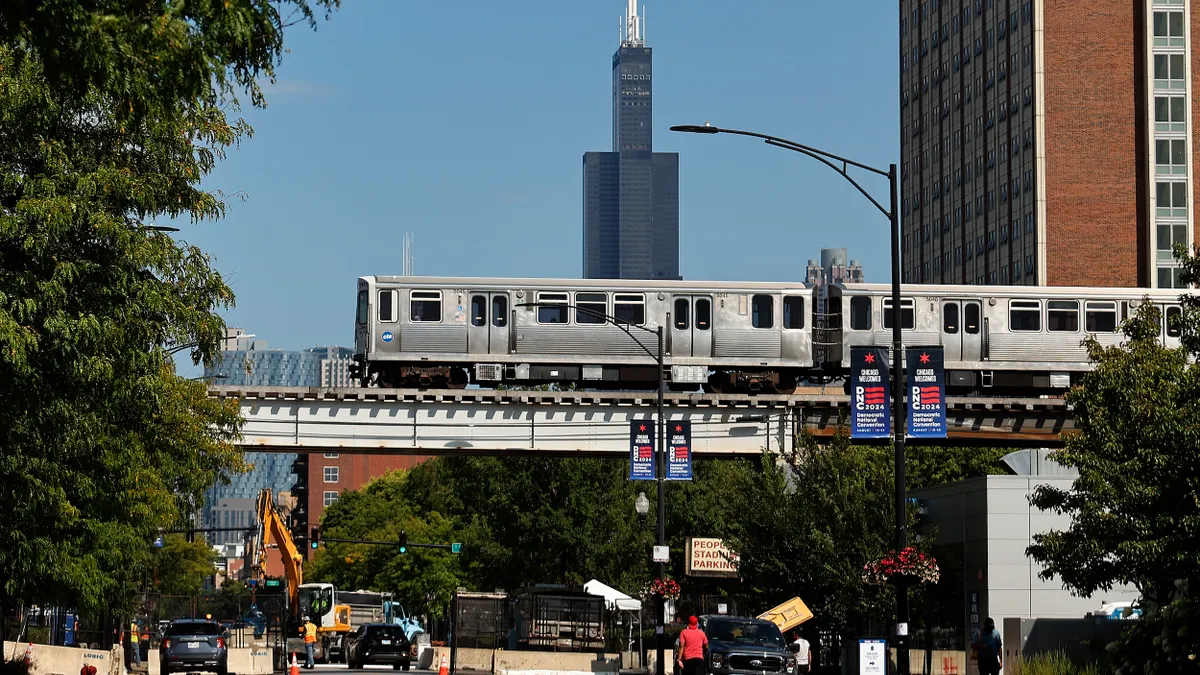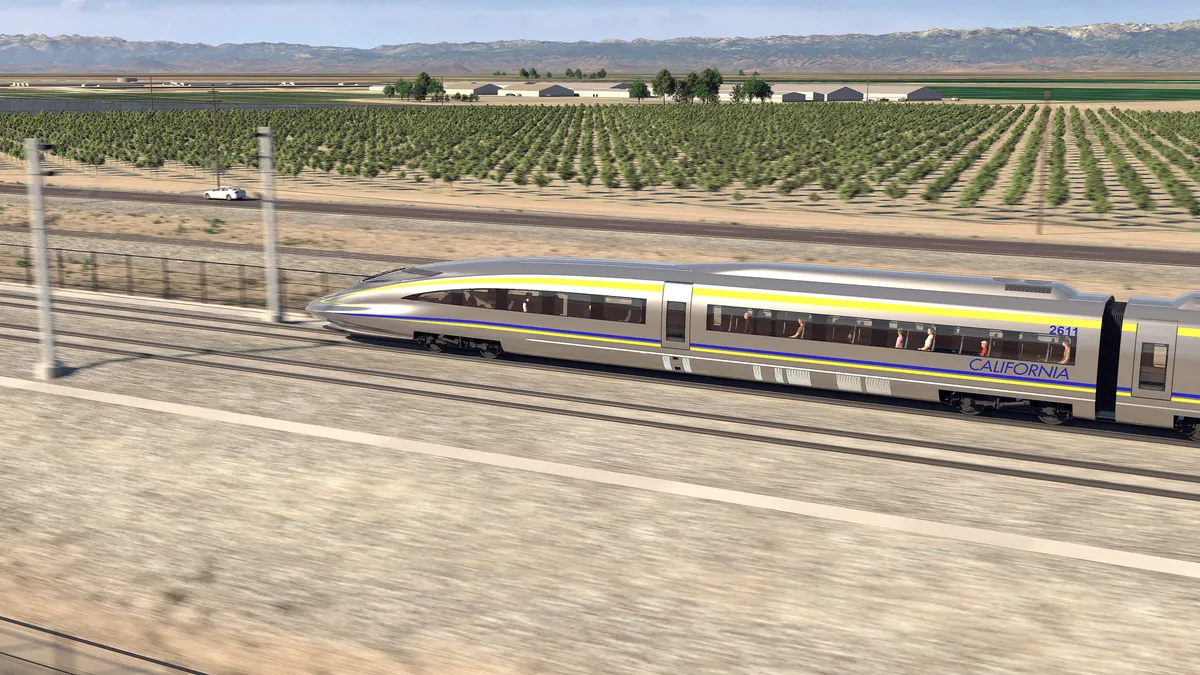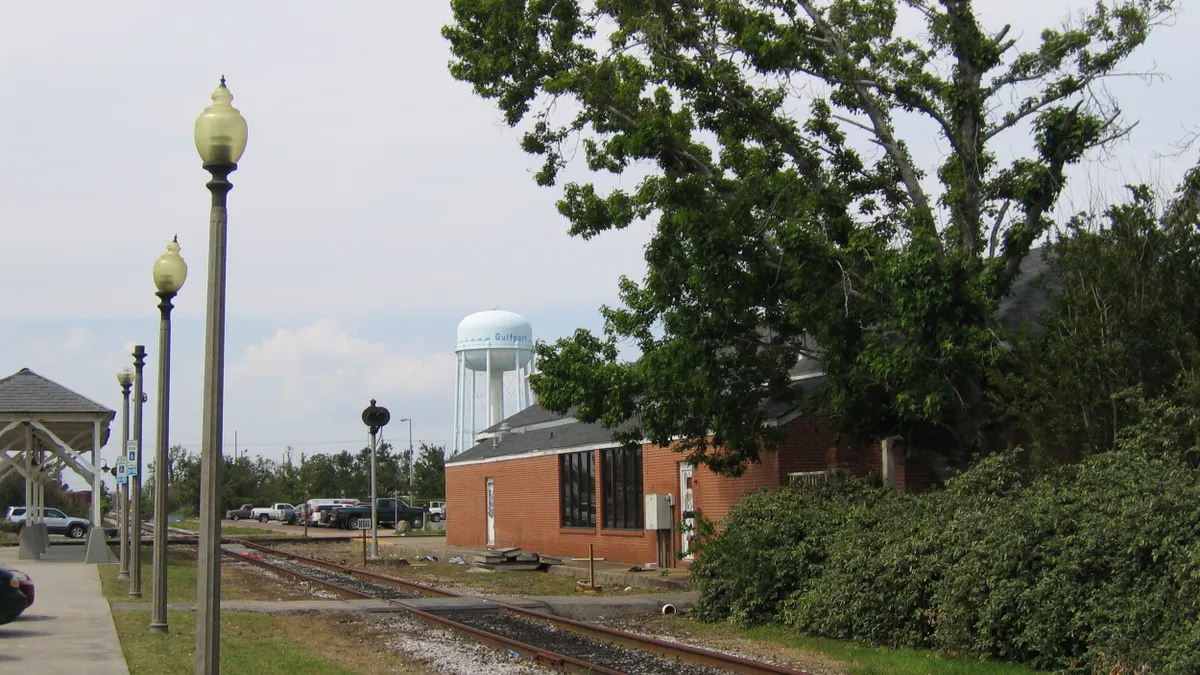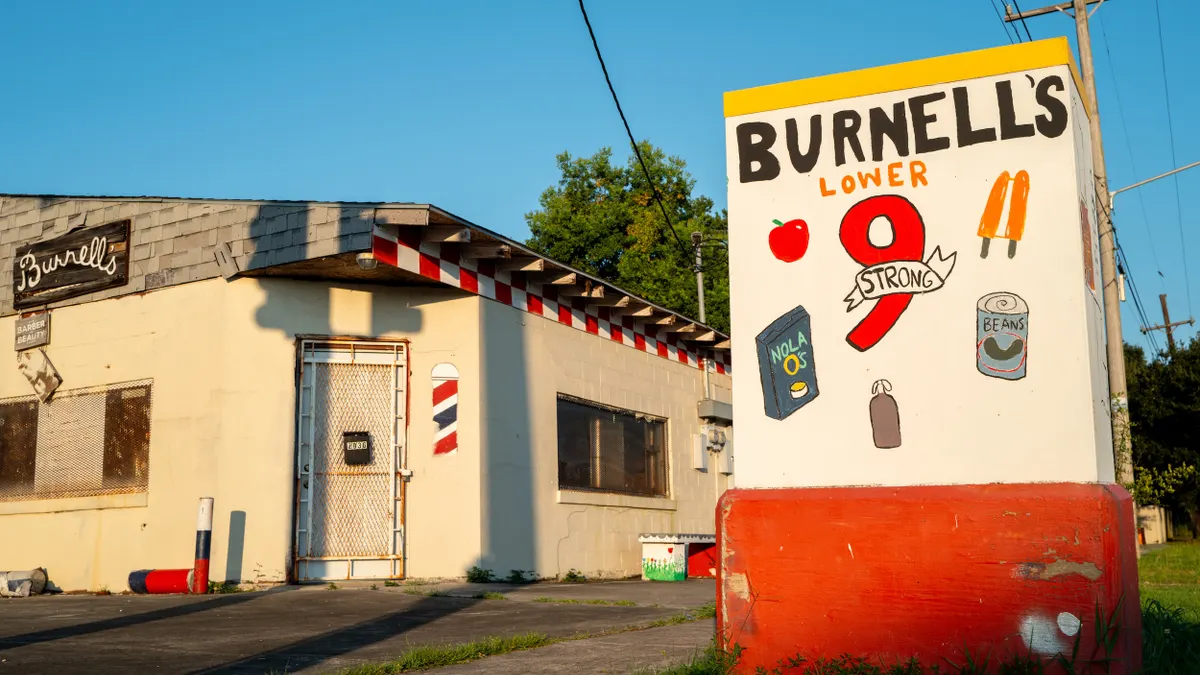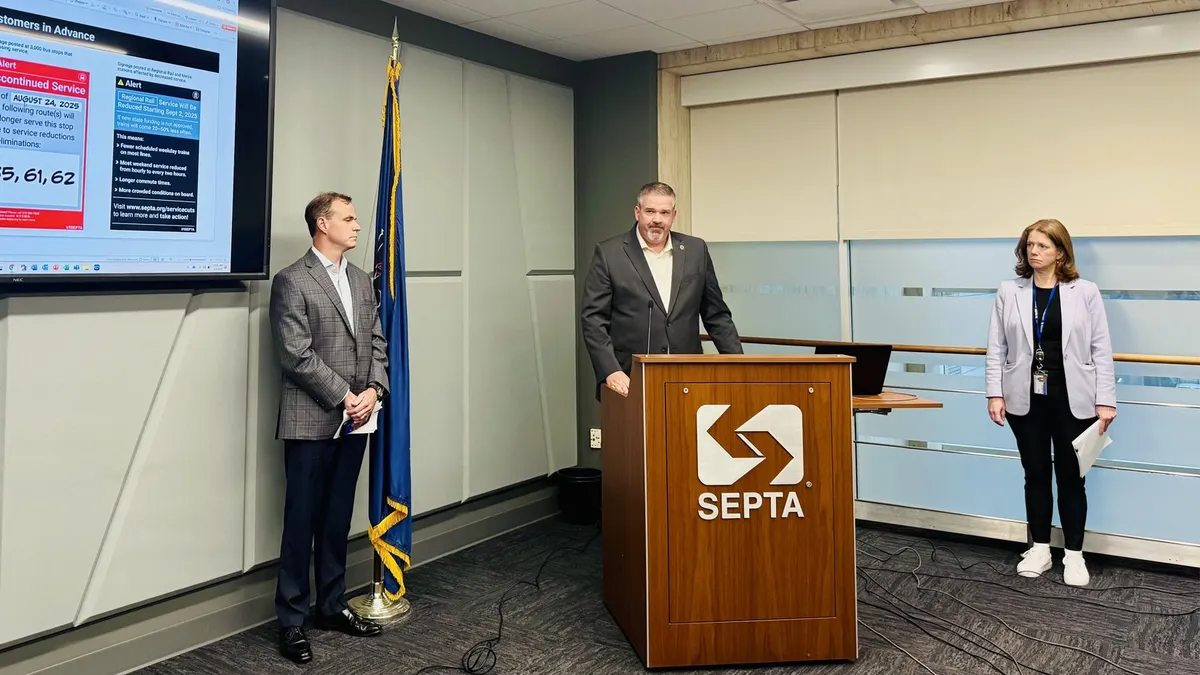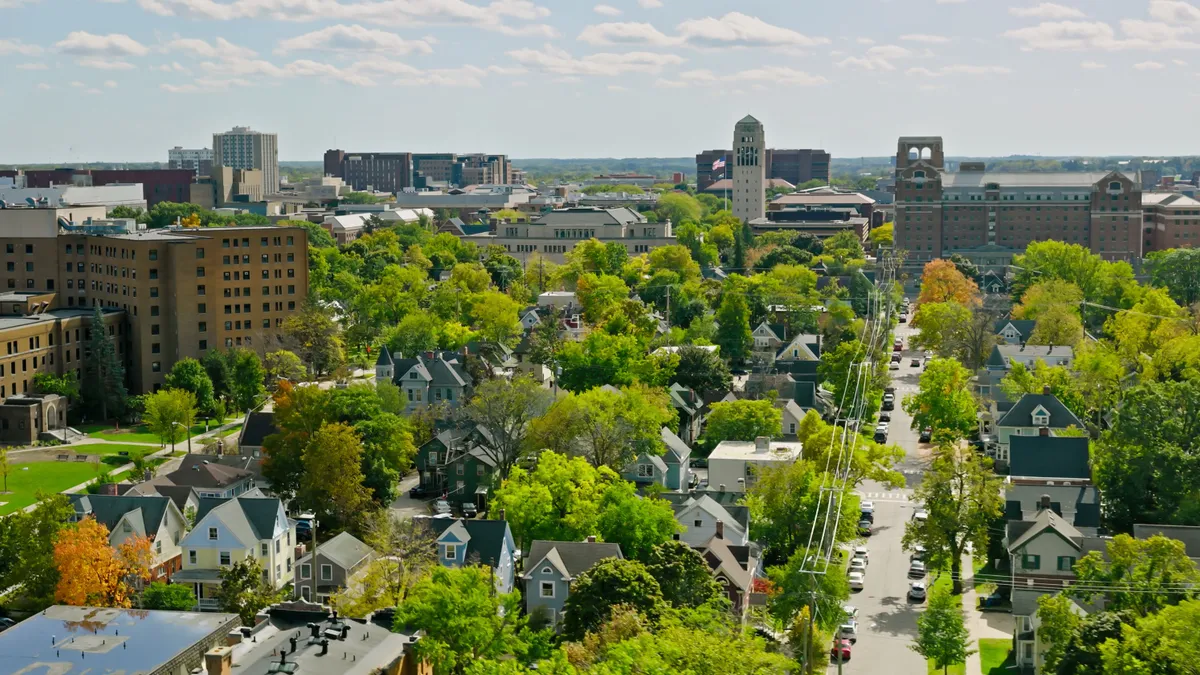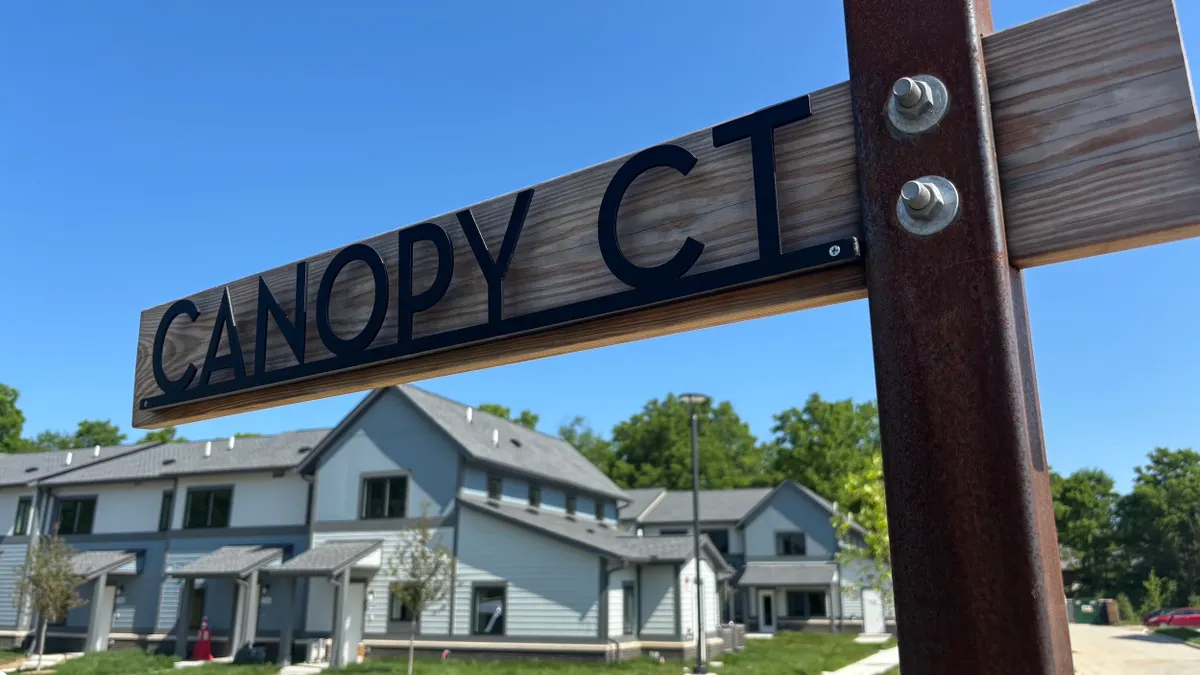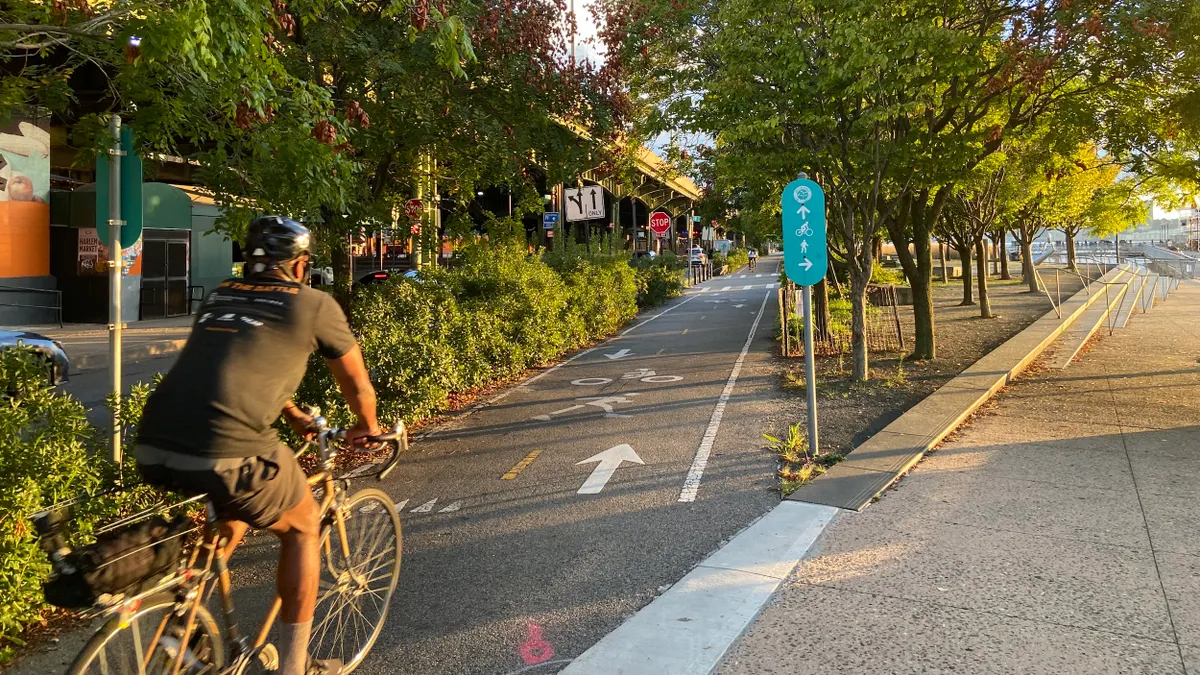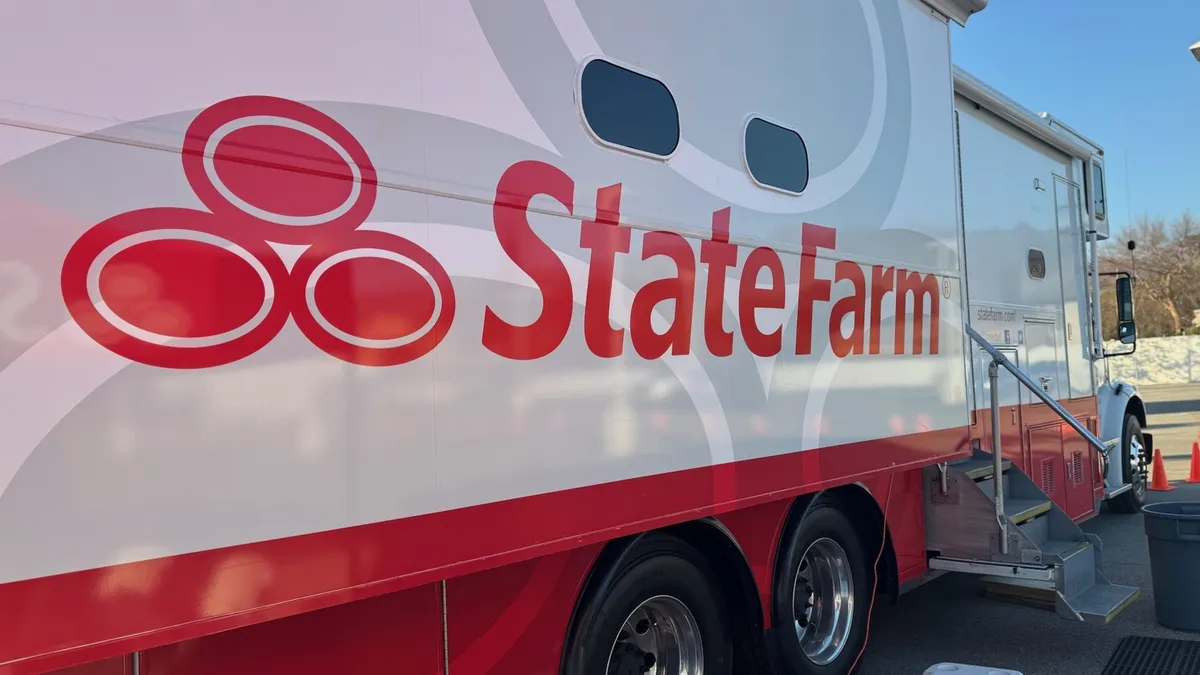The Latest
-
Tracker
US high-speed rail projects: The latest news
Under pressure from the federal and state governments, the authority aims to leverage existing rail lines to reduce costs.
Updated Aug. 27, 2025 -
Pritzker warns cities to prepare for Trump’s National Guard order
The Illinois governor responded to President Donald Trump’s directive mandating troops be available for “rapid nationwide deployment” with a warning that cities everywhere could be next.
Updated Aug. 26, 2025 -
How Hurricane Katrina killed Amtrak’s transcontinental train
Amtrak restored train service from LA to New Orleans, but passenger trains east to Mobile, Alabama, only restarted last week.
-
New Orleans’ economic recovery since Katrina is divided along racial lines
New Orleans has gained a more diversified economy and stronger entrepreneurial ecosystem. But Black households have not benefited as much as White ones.
-
Philadelphia-area 20% transit cuts go into effect
With the Pennsylvania state Legislature unable to agree on funding for the Southeastern Pennsylvania Transportation Authority, the agency began cutting service and increasing fares today.
-
As federal funding dries up, 72% of Michigan city leaders fear fiscal problems: survey
Uncertainty and limited capacity are factors in local governments' lack of preparation, researchers said.
-
Judge blocks Trump from halting funding to 34 ‘sanctuary’ cities
Trump’s orders threatening to strip funds from cities limiting immigration cooperation are unconstitutional, a federal judge said, extending protections to Boston, Chicago, Denver and more.
Updated Aug. 25, 2025 -
FTA seeks to eliminate environmental criteria from capital investment grant guidelines
The Federal Transit Administration requests public comment on updated guidelines that would remove the “social cost of carbon” calculation and make broader changes to the multibillion-dollar program.
-
Hurricane Katrina’s legacy is a warning for today’s city leaders
Twenty years after New Orleans flooded, federal funding cuts mean local governments must strengthen hazard planning, engage communities and prioritize vulnerable residents to prevent another avoidable disaster, climate advocates say.
-
In Colorado, most residential zoning codes block affordable housing
Restrictive zoning laws prohibit multifamily dwellings throughout much of the state, a recent study found.
-
The Municipal Cost Index
See the August update to this monthly index, developed by American City & County to capture the rising cost of doing business as a local government.
Updated Aug. 22, 2025 -
Salesforce debuts AI agents for city services
The tool joins a growing field of AI products intended to increase local government efficiency and responsiveness.
-
Ann Arbor’s all-electric community offers a new model for net-zero living
Veridian at County Farm stands out for its rooftop solar, heat pumps and potential community battery network. Will the local utility’s hesitation and loss of federal tax credits prevent other developers from following its lead?
-
Opinion
California’s clean mobility push is leaving low-income residents behind
E-bikes and e-scooters are among the cleanest and least expensive transportation modes. California can make equitable green mobility a reality.
-
Deep Dive
Are intercity buses having a Cinderella moment?
Ridership is on an upswing, and several cities are opening new or refurbished intermodal terminals. Here’s what you’ll find in eight major cities.
-
City and county leaders urge Congress to reinstate ‘critical’ cybersecurity funding
The federal government canceled funding for a cybersecurity resource credited for detecting more than 43,000 potential state and local government cyberattacks last year.
-
Should schools be the centerpiece of heat resilience action?
As federal support to protect people from extreme heat shrinks, advocates say local governments must set a model for climate-smart leadership with enforceable standards and resources to protect children.
-
Tracker
Air taxis and urban air mobility: The latest developments
An Archer Aviation test pilot flew for 31 minutes at air speeds over 126 mph, marking another step toward federal certification.
Updated Aug. 19, 2025 -
DOT revives $5B EV charging program, hands states more control
New federal guidance cuts planning requirements and unfreezes funds, but critics note the changes eliminate consumer and environmental protections.
-
Cities brace for legal battles as Bondi’s ‘sanctuary’ deadline looms
Local leaders say they’re prepared to defend protections limiting cooperation with immigration enforcement even as the Trump administration threatens to revoke funding and bring criminal charges.
-
This small Oregon city voted to stop adding fluoride to its drinking water. It’s part of a larger trend.
Sweet Home, Oregon, joins a growing number of states and cities in voting to end the practice that major dental organizations have recommended for 75 years.
-
NYC unveils master plan to expand pedestrian, bicycle paths
The plan envisions over 100 projects the city says can connect underserved communities, spur economic development and provide environmental benefits.
-
State Farm homeowners insurance rates to surge 27% in Illinois
The move is part of a nationwide trend of premium hikes that’s making housing even less affordable.
-
2028 Olympics security plan tests LA-federal partnership
Trump’s executive order puts the federal government in the driver’s seat for Olympics security. Experts wonder if cooperation — or confrontation — will be the result.
Updated Aug. 18, 2025 -
A path with purpose: Encouraging students to explore public service roles
Local government is the front line of public service. Though they play a crucial role connecting communities with essential support, state and local agencies are often chronically under-resourced, especially when it comes to supporting tech talent.

